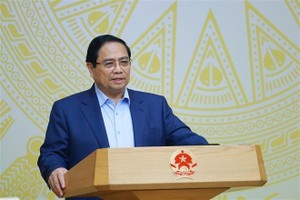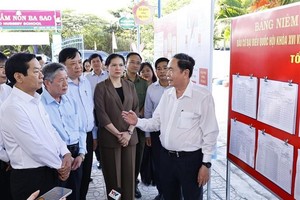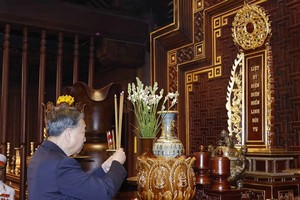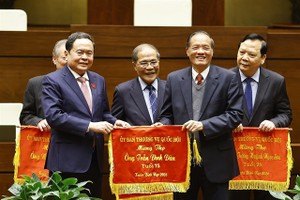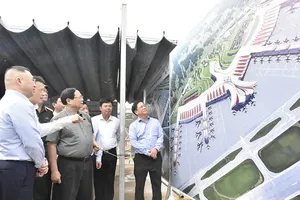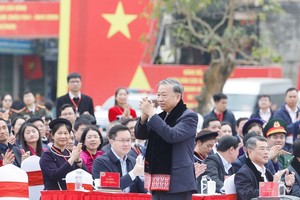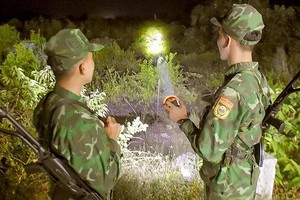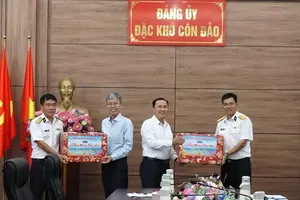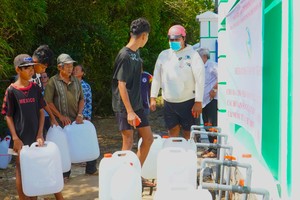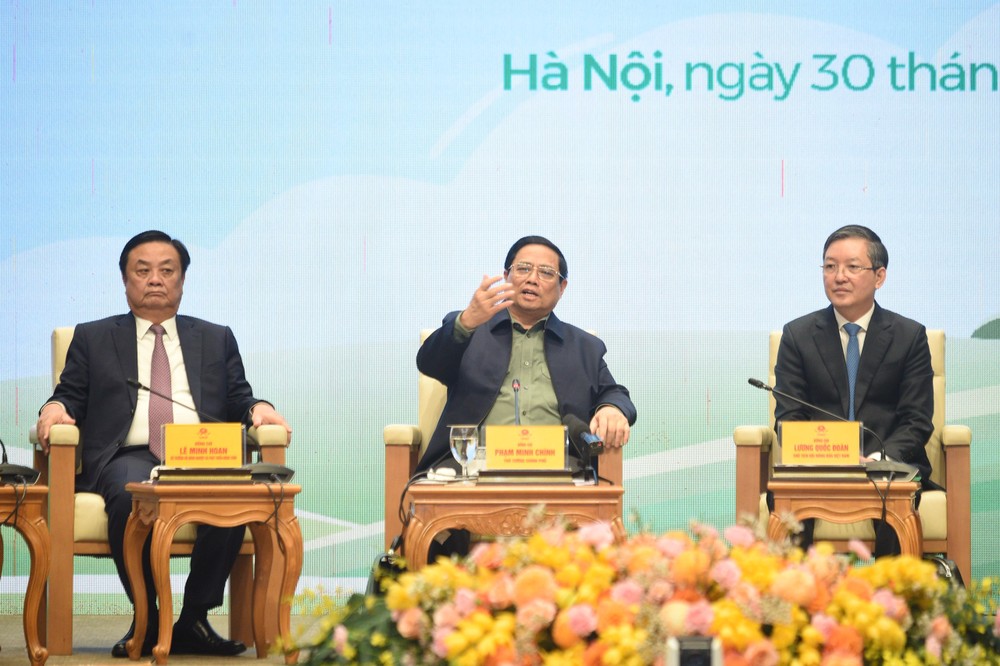
Prior to this event, the Vietnam Farmers' Union had received nearly 2,000 questions from its members addressed to the PM, focusing on such fields as the role of farmers in achieving the target of net-zero greenhouse gas emissions by 2050, the promotion of digital transformation in agriculture, and measures for waste management and environmental protection in rural areas, among many others.
In his conclusion at the dialogue, the PM Chinh highlighted the consistent viewpoint of the Party and the State on developing agriculture, rural areas, and farmers, as well as the issuance of numerous important and strategic orientations and policies that underscore their role and position in the national development process.
Informing participants on the agriculture sector's estimated GDP growth of 3.83 percent in 2023, the highest level in many years, and on its trade surplus of approximately US$11 billion from agro-forestry-aquatic product exports this year, the PM also outlined some challenges facing the sector.
He noted that agricultural development still follows a production-oriented mindset rather than transitioning to an economic mindset. There are also shortcomings in rural development planning, environmental pollution issues, and new challenges in rural security and order.
PM Chinh called for the enhancement of the patriotic spirit, self-reliance, and political position of Vietnamese farmers regarding innovation and international integration. He emphasised the need to increase farmers' awareness of the development of large-scale commodity, smart, clean, and safe agriculture, and the application of sci-tech achievements, international integration, and adaptation to climate change.
He requested the Ministry of Agriculture and Rural Development and localities to promptly direct people to actively implement a project on sustainably growing 1 million hectares of high-quality specialised rice and low-emission growth in the Mekong Delta by 2030.
The PM stressed the importance of restructuring production, strengthening value chain linkages, and connecting production with processing and consumption via the development of various forms of cooperation and partnerships between households and organizations and enterprises.
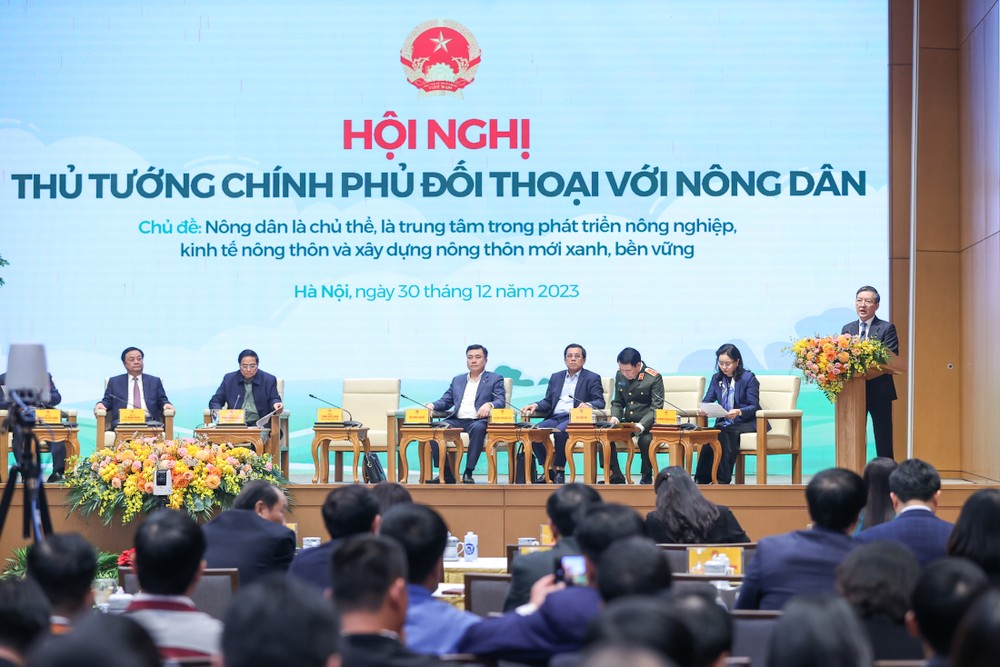
"We must strengthen linkages, diversify production and supply chains, enhance deep processing, expand healthy competitive markets, and promote the development of green, high-yield, low-emission, and sustainable production," noted the Government leader.
The PM urged sectors and localities to fully understand the role of farmers, improve the quality of training and consultancy services offered to farmers and rural laborers in production and business, and step up digital transformation in agriculture.
It is essential to concentrate resources on implementing the national green growth strategy for 2021-2030 with a vision to 2050, with the farming sector required to effectively implement plans to reduce greenhouse gas emissions and methane in agricultural production, he stressed.
